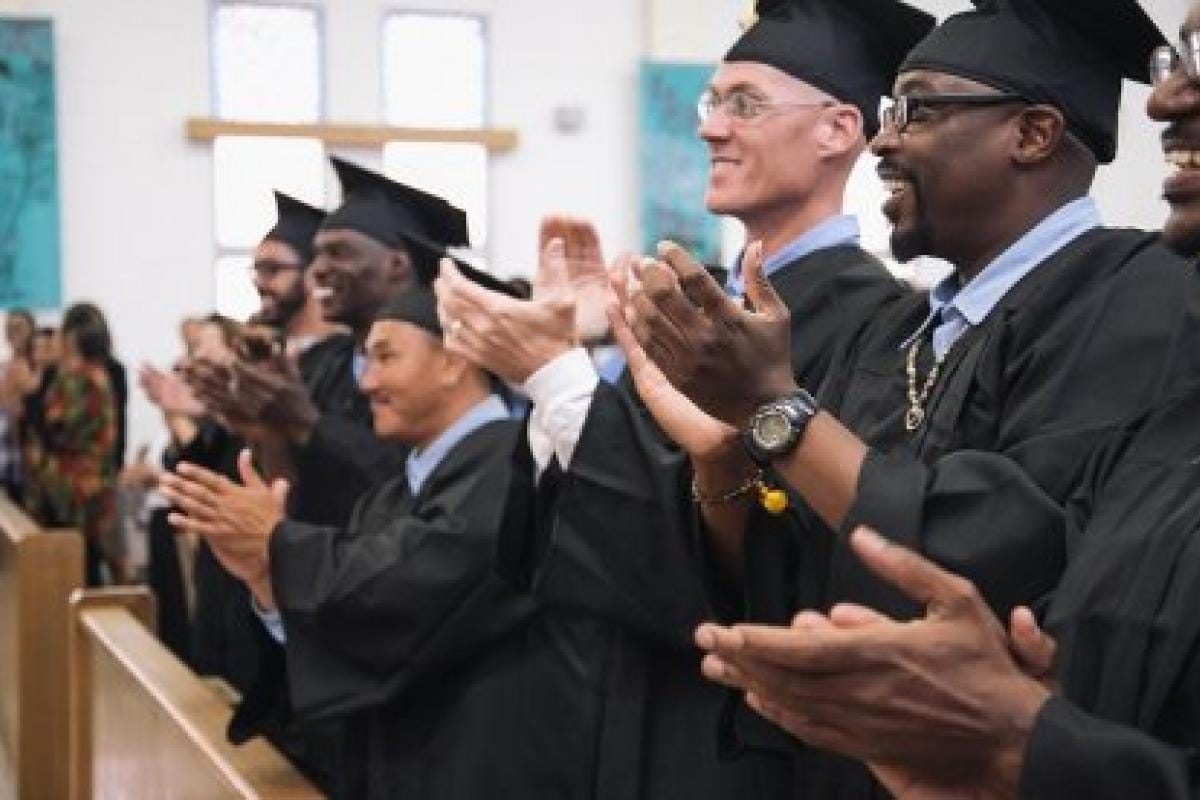"Please Don’t Feel Sorry for Me"
In this week’s installment, we remember an extraordinary class we taught at San Quentin Prison and talk to Zakee Hutchison, who was released this spring after serving twenty-one years.
Scene from graduation at the Prison University Project at San Quentin Prison (now called Mount Tamalpais College)
In the summer of 2012, we co-taught a course for the Prison University Project at San Quentin Prison in Northern California. It was ostensibly an English class, a college writing requirement, and the theme we chose was “Doubt and Belief.” Our goal was pretty simple—we wanted to use the class to read as much classic literature as possible. But it became so much more. The course changed our lives.
Early in the semester, we read the Book of Job, and asked students to describe the kind of God who might take everything away from you. Was God a jerk? We didn’t know how provocative we were being until a student got up and walked out, slamming the door behind him. At home that night, feeling low, we started to question whether the dispassionate analysis of a text—the conventional method of academic discussion—was the only way. Religious belief had given this student hope, a reason …
Keep reading with a 7-day free trial
Subscribe to A Broad and Ample Road to keep reading this post and get 7 days of free access to the full post archives.


